Since thousands of years, innovation has been the primary success factor for any business and for any economy. And the counter fact, a declining ability to innovate, results in declining successes and the business or nation eventually vanishes away from top of mind as one of the companies or nations people talk about.
Emerging country entrepreneurs have the best potential for innovation
When recognizing a big problem and working in a team to find a solution, emerging country entrepreneurs have a big advantage of the developed world: No limits from ideation to idea validation, to early production and entering into the mainstream market. In the developed world, even existing innovations like Amazon, Facebook, Tesla, Uber, AirBnB are attacked by pseudo legal conflicts all the way to banning those innovations. Mercedes can’t run autonomous driving test cars in Germany and need to do it in Silicon Valley, the arch rival of innovation. Amazon gets fought as the killer of the small businesses as customer prefer the much easier online offering. Facebook is a constant victim of attacks due to its sheer size and influence based on their innovation that attracts two billion users daily and represent essentially 90% of the digitized world. Like Amazon, AirBnB and uber are even banned in some countries because their innovation has put the lagard and conventional businesses in jeopardy. And instead of “counter innovating” the slow moving and far to letharging old world businesses fight with legal attacks however obscurely created. Whether one creates or tries to implement innovative and disruptive solutions in the developed world is doomed to fail. The good news. Europe and the US with its combined 1 billion population is only one 8th of the world population. The other close to 7 billion people, 1.4 billion in fast rising Africa, 4.5 in even faster growing Asia are more then enough to become a world leader in any solution of the millions of unsolved problems. The innovative minds in those developing and fast emerging nations are not just the only chance those countries have to get out of poverty – it is the only chance for all of us to get the much needed innovation to thrive as the human race.
Innovation is at the heart of the Word Innovations Forum
The World Innovations Forum Foundation was established as the “global exchange for innovative minds”. In the early days of our work we did that in 2014 under the Society3 brand as an accelerator in San Francisco, California. We expanded to Europa and began to work also in South east asia. Whatever country we visited, we saw the exact same pattern than in Silicon Valley, the rest of the US, Europe and the rest of the world: There are highly innovative, fearless, determined and intelligent entrepreneurs who want to change the world. Their gravitational force is almost magic and they attract hundreds of young people wanting to become an entrepreneur too. And even several of them make it as well. The rest is copying stuff that is already out there, hope they can make it cheaper and eventually fail and close their shop. With six years of experience what works and what not we are constantly improving our selection processes and with it making our acceleration and guidance as well as mentorship ever more demanding. One clear request we have not been stressing enough in the past is the WILLINGNESS TO INNOVATE. We have seen entrepreneurs who just did not have the right idea because they didn’t even know where to start to look for the right idea. We were able to help. But those who lack the mental bandwidth or interest to innovate we will no longer support. This has nothing to do with trying to be an elite club – we are the opposite. But without innovative the eagerness to create an mindset a team just can’t be successful. If one wants to become movie star because of the glamor but is not willing to work for the skills and develop the talent it’s a waste of time for all parties. Innovation is at the heart of or organization AND in its name from day one. Going forward we will exclusively work with innovative minds and let other organizations who work with any startup do their job as good as they can. With the limited resources we have, we must focus on the best talents out there, who can make a difference.
Where do those magical innovative ideas come from?
The founders of the World Innovations Forum are known for their innovation history, creating 5 innovative businesses, with disruptive business models. That experience led to building the San Francisco Accelerator within the Society3. Yet another creation is coming out of Society3: BlueCallum. After four years of research where innovative ideas are coming from and how they are created, the team got inspired by latest neuroscience discoveries and found the answer. BlueCallum is a wholly owned business of Society3 and now focusing entirely on innovation creation, called Neuro Ideation and innovation process management with a new “Deep Innovation Design” model. Unlike many innovation methods including the “Design Thinking” model, Deep innovation design start before ideas get created and only finishes once the innovative idea is successfully brought to global markets. BlueCallum effectively disrupts the act of innovation itself. The close relationship between WIForum and BlueCallum is a great advantage to all WIForum members.
Searching for 007 Entrepreneurs
In every country we find at least 0.007% of the population being top successful entrepreneurs and the number can grow up to 0.3%. A successful entrepreneur has three key attributes: 1) has an innovative vision and approach, solving a major problem. 2) builds a company with thousands of jobs. 3) Has the execution power to export their products and create a major contribution to the nations GDP. Getting out of university and building a billion $ company is sort of the mainstream view of the entrepreneurial super stars. Fact is that all today’s top entrepreneurs have been gaining business experience by working in a large company and understanding how such a business works. Another globally spread myth is that experimentation, pivoting and trying something new gets a startup to a great result. Fact is that none of those ever made it to the top – none means zero. Another myth is that the lean startup method is a great method to follow. Fact is that it is a method created by somebody who failed 3 times and the big win was explaining it with creating a method. Since it was the first methodical startup approach every business school and university jumped on it but it was never proven to be successful. We wee looking at success pattern and the skills that connect all of the top entrepreneurs. We could not find one skill that connected them but ten traits / talents that were found in each of the top entrepreneurs. I don’t want to repeat it hear so just a pointer to the corresponding blog post:
We need all our partners, supporters, friends, friends of friends and networks to identify those golden talents in each country. After explaining above in great detail the why, let us share the how: 10 most relevant founders traits
If you get across anybody, however crazy, with absurd ideas to make a difference, point them to the world innovations forum and in particular to the InnoPreneurs Program AKA “007 Program“.
By answering a few questions we get a first indication of the entrepreneurial mind.
We follow up with a casual conversation to better understand motive, objectives, desires and so forth
Maybe a follow on conversation exploring the idea and the vision
Thereafter we will consult with our country ambassador for more insights.
If we can find 2,000 of such entrepreneurial minds in a 30 Million population country, we are at 0.007% of the population and it would be an amazing start.
Entrepreneurial Spirit Development
The first thing we will do, is to help an develop an entrepreneurial mindset. There are a few biases with even the most potent entrepreneurial superstars may have, mostly due to misseducation and wrong guidance:
1) Believing that they need money to start a business
2) Believing they need a university degree to create a company
3) Believing that they cannot afford top notch co-founders
4) Believing they need to be an engineer to craft a solution for a problem
5) Believing that they need a big advertising budget to get into the market
6) Believing that after the first round of funding they are over the hump
And several other believes like that
We will help curent that as all of that is neither necessary nor correct.
And since we realized that we are continuously working with our portfolio companies, even after six years, we created a long term program of mentorship and guidance, accompanying the teams through all phases of a business from start to full maturity.
Global Mentorship & Support Network
Since long term support is not only a problem in emerging countries, we will support entrepreneurs from any nation by building up an digital network of mentors and other successful entrepreneurs to be helpful to the next generation. The unfortunate pandemic however also trained everybody to be digital, accept digital and use the digital engagement to their advantage. At the World Innovations Form we are building a online network of mentors and supporters. If you like to help entrepreneurs with your entrepreneurial experience join the global network and become a member.
Looking for more information on becoming an Entrepreneur or running a successful startup? Well we are hosting monthly webinars to answer your burning questions. Entrepreneurs talk about their experience and will answer often asked questions. This journey that you are on is not an easy one, with many ups and downs, but it does not mean you have to do it alone. Our webinar series starts from the very beginning and walks you through the innovation process, finding funding, building a team and customer acquisition. So what are the benefits for you?
- Insights from Entrepreneurs who have been in your shoes before;
- Formulas, checklists and tips on how to be a successful entrepreneur;
- Opportunity to directly ask those burning questions.
Our knowledge transfer webinar series has already started but you can watch all previous episodes on our website or check out the summaries below. Also, mark your calendars for the upcoming webinars so you do not miss anything. More details below.
Summary of the Past Three Webinars
Entrepreneurs DNA
 Our first webinar is a great starting point for anyone considering becoming an entrepreneur, as it walks you through what it really takes to be a successful entrepreneur. The main takeaways answer the question, what are traits of an entrepreneur? These are not skills, nothing inherited, no expertise, no training …
Our first webinar is a great starting point for anyone considering becoming an entrepreneur, as it walks you through what it really takes to be a successful entrepreneur. The main takeaways answer the question, what are traits of an entrepreneur? These are not skills, nothing inherited, no expertise, no training …
- Fearless/ Risk Takers*
- Independent*
- Curious/ Open*
- Creative/ Compositive*
- Determined*
- Intelligent*
- Connected
- Communicative
- Confident
- Involving
*Must have to be a founders. Cofounders can offset 40% of the missing traits.
Idea Seeker
 You want to be an entrepreneur. You have the important traits addressed in our first webinar, Entrepreneurs DNA but you don’t have an idea? In our next webinar, Idea Seeker, we showed you where the best ideas in the world come from. You might be surprised; it is easier than you may think.
You want to be an entrepreneur. You have the important traits addressed in our first webinar, Entrepreneurs DNA but you don’t have an idea? In our next webinar, Idea Seeker, we showed you where the best ideas in the world come from. You might be surprised; it is easier than you may think.
Where are great ideas coming from?
- From your own experiences (problems)
- From careful market observation & listening
- From taking many perspectives (see opportunities)
- Crafting a concept (initial value of an idea is zero)
- Get ready to execute – the path to value and prosperity
- Why even looking for an idea? It’s the ignition.
Idea Validation
 Now you have your idea but how good is that idea really? Do you know? Our next webinar, Idea Validation, showed you how to get that answer and even how to make a so-so-idea into a really great idea. We cannot stress enough, build what customers want – not what you think they should get! Here is some top client feedback to consider:
Now you have your idea but how good is that idea really? Do you know? Our next webinar, Idea Validation, showed you how to get that answer and even how to make a so-so-idea into a really great idea. We cannot stress enough, build what customers want – not what you think they should get! Here is some top client feedback to consider:
- What problem would you solve?
- What value would it be? How much?
- What happens if we take it away?
Where to Watch
You can watch all of our Knowledge Transfer webinars, including are SPECIAL EDITION sessions here: http://wiforum.org/webinar-recordings/ If you enjoyed the content please let us know by commenting, subscribing or liking our videos on YouTube. We are welcome to any feedback and are happy to answer any additional questions you might have. Please email us at contact@wiforum.org.
Join our Next Session
We are hosting our next session, Innovative Thinking on Monday, August 3 at 10:00 AM WAT | 12:00 PM EAT | 4:00 PM ICT. Want to become really innovative with ground breaking concepts? You can actually learn this. Don’t miss out on anymore of our webinars, find all upcoming events and registration links here: http://wiforum.org/online-events/.
Yet another amazing World Innovations Forum Conference, all online. Attendees from 59 countries and speakers from 22 countries made it a great event.
The conference started with the 10-year agenda of the World Innovations Forum Foundation. Our Chairman talked about the time it takes to make startups into big companies and how many are needed to turn a developing country into a prosper economy. The aim of the forum and its members from over 20 countries is to double the number of developed countries by the end of this decade – 2030. Later on he spoke about the Innovations age where currently 30 patents are registered every minute. By inspiring more innovation this number will grow exponentially in the next ten years.
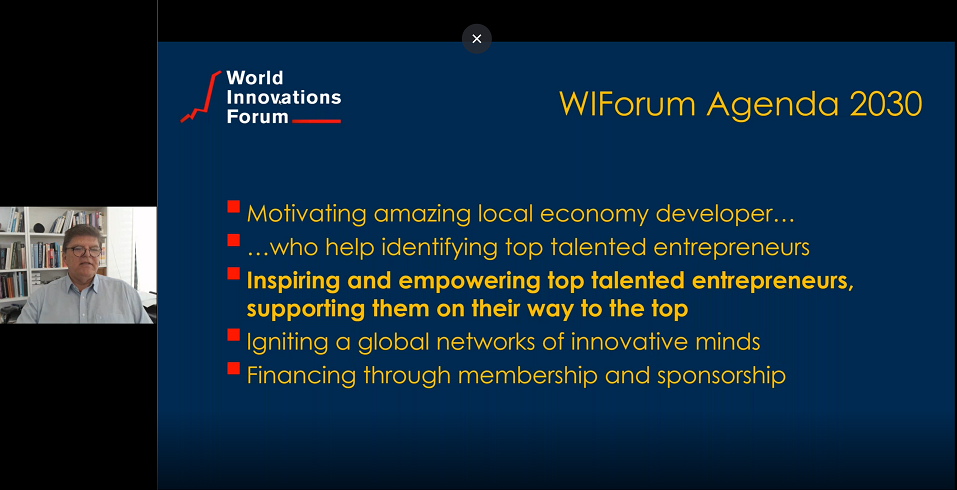
A WHOLE GROUP OF ORGANIZATIONS ALIGNED
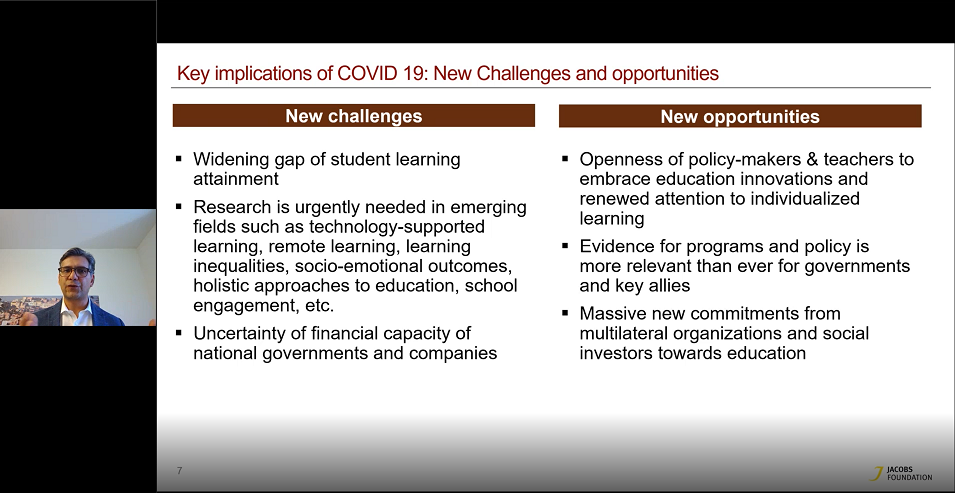 The World Innovations Forum is not the only organization with big ambitions. Another organization in our ecosystem are helping entrepreneurs to thrive, create large number of jobs and get their country to prosperity is the Jacobs Foundation. Their contribution to 2030 is to help with education and embracing learning variability. From a one fits all education system to learner adjusted education.
The World Innovations Forum is not the only organization with big ambitions. Another organization in our ecosystem are helping entrepreneurs to thrive, create large number of jobs and get their country to prosperity is the Jacobs Foundation. Their contribution to 2030 is to help with education and embracing learning variability. From a one fits all education system to learner adjusted education.
ENTREPRENEURSHIP DEVELOPMENT
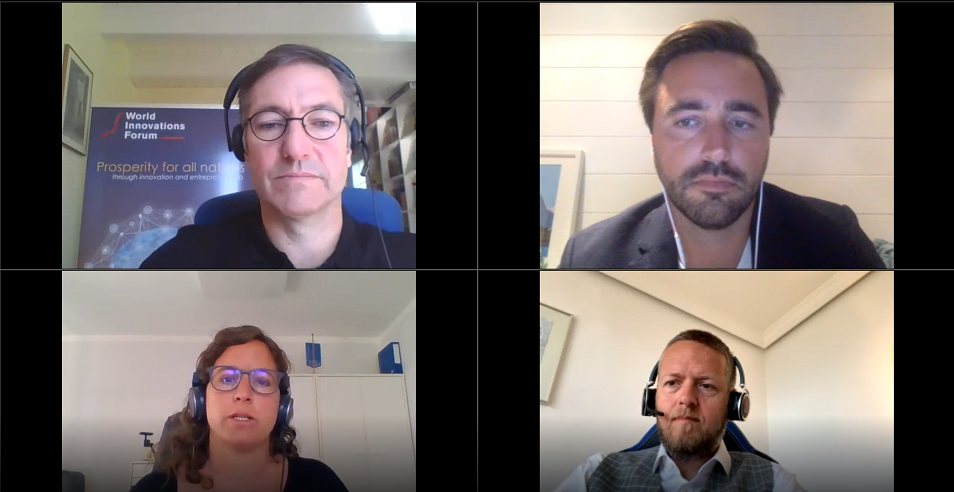 In the following entrepreneurs round table, representatives from Tech in Africa, Axel Peyrier, the Happel foundation, Alexander Lanz and SwissContact, Teresa Widmer spoke about what it takes to actually inspire entrepreneurs, not telling them what to do. Great discussions and a variety of perspectives.
In the following entrepreneurs round table, representatives from Tech in Africa, Axel Peyrier, the Happel foundation, Alexander Lanz and SwissContact, Teresa Widmer spoke about what it takes to actually inspire entrepreneurs, not telling them what to do. Great discussions and a variety of perspectives.
AMAZINGLY INNOVATIVE ENTREPRENEURS
We saw a total of 9 amazing startups and scaleups that only proves, that there are extraordinary and innovative startups in any country on Earth.
Owen Sakawa from RepairNet, Kenya, is building a platform for a roughly billion people market and their repair needs in Africa. And Eddy Richauvet from ShopRunBack in Cambodia is building possibly the most powerful addon to the e-commerce world, a complete “Return-Platform” including the logistics network for the 65% of the eCommerce market not covered by Amazon.
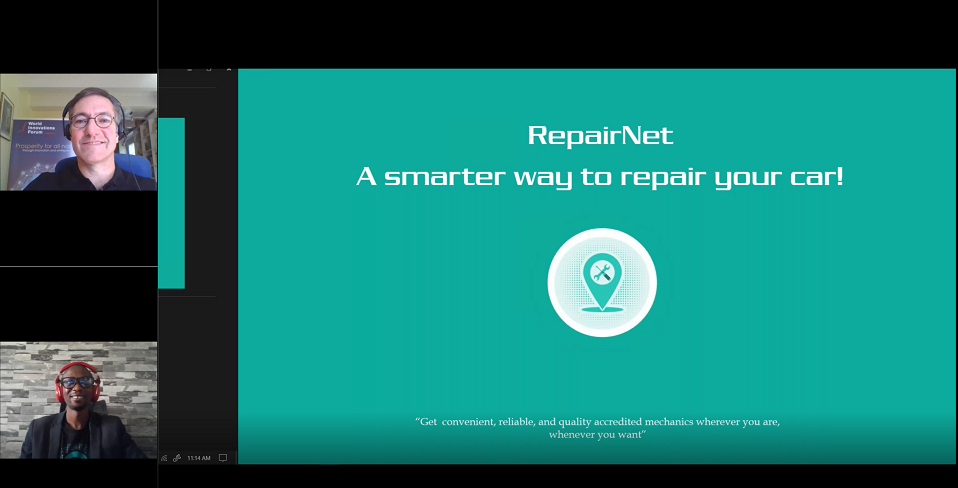
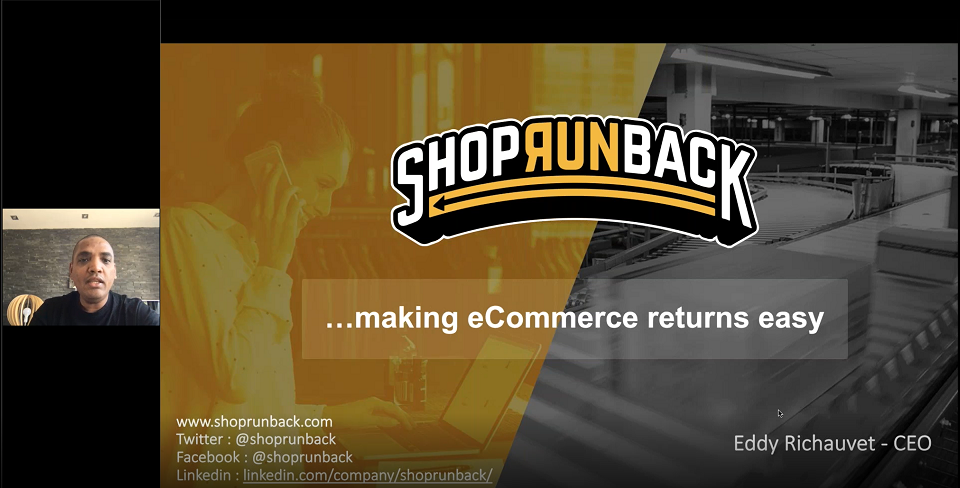
Lin Hwang from Damogo, Indonesia is fighting food waste and how they turned on the heat in just a few months. Tobias Gunzenhauser, from Yamo, another Accelerator graduate, shared how he and his co-founders built Yamo into a super fast growing baby-food powerhouse.
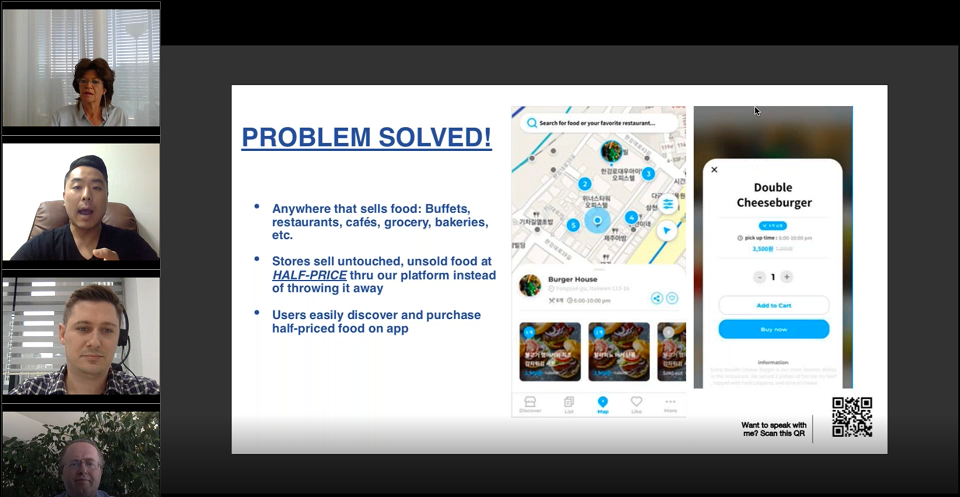
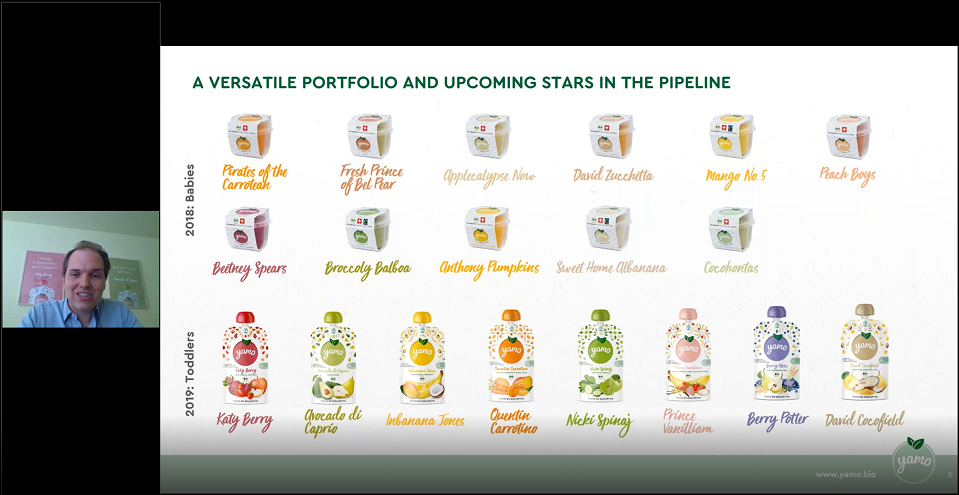
Agudor Agabas from AppCycle in Ghana presented their idea and how they transform waste to new products and use almost exclusively waste to produce everything from clothes to accessories in a very innovative way. A different innovator was Ibrahim Abdulmalik from Farmula in Kenya, he shared how they help revitalize the supply chain of farmers’ businesses, as it is to a large degree destroyed from western food business. Expired food from the developed nations are brought into Africa as “development aid” but ruins in some sections the entire local food chain. How can a chicken farmer compete with their free range chicken against chicken for free, even if it is already a bit rotten.
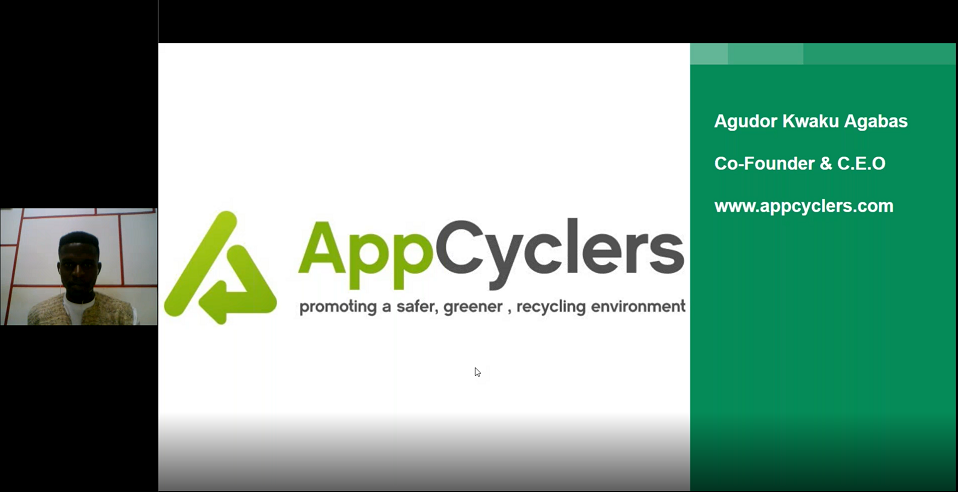
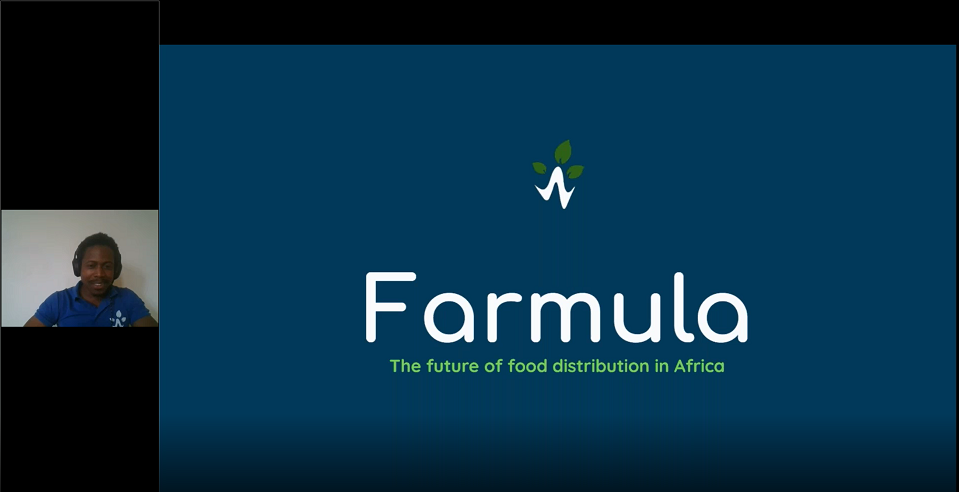
Moving virtually back to Asia, Phi Nguyen from sPhoton presented a new Artificial Intelligence based Corporate Communication System, taking modern voice interaction aka Alexa into the corporate world. It may not apply in the West, but the 6 billion Asian market with managers half the average age and hungry for digital experiences, is certainly a pristine market for it. Africa is seeking talents very much like Asia. Emmanuel Leslie, from TalentsInAfrica in Ghana presented another AI based solution for talent development and talent match. With a number of startups that exceed the number of Silicon Valley startups, Africa is moving extremely fast and talent acquisition is one of the limiting factors.
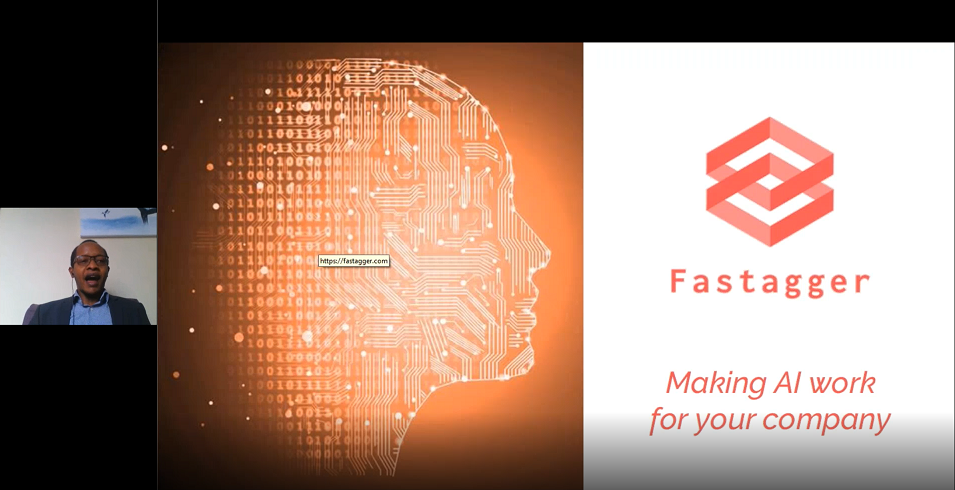
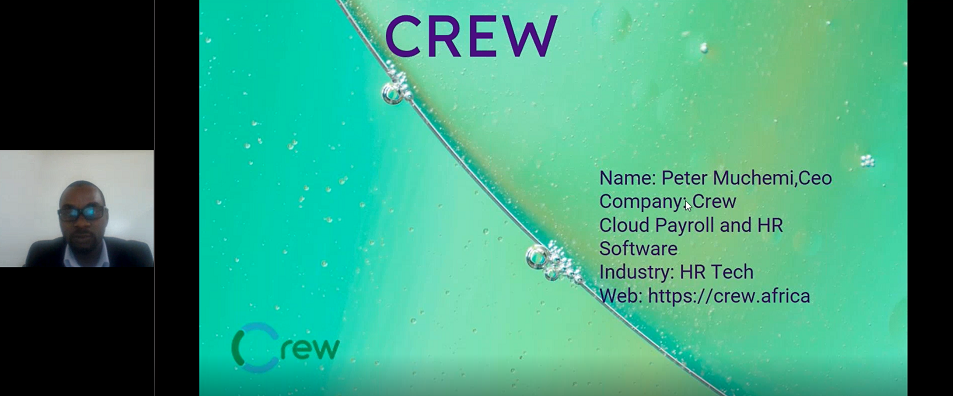
Two more innovators presented, Mutembei Kariuk from Fastagger in Kenya and Peter Muchemi from Megashift, also in Kenya. Last and definitely not least was a special highlight. Binay Raut, from Paaila in Nepal presented the first Artificial intelligence based Robot from Nepal. In less than a year, the team built a first greeting robot, then a more sophisticated robot for banks and was even able to export their robots to the US. During the pandemic, Paaila was the first to build a robot for hospitals, serving patience and reducing the risks for the care personnel. Just a few years ago, it was unthinkable to create AI based robots made in Nepal.
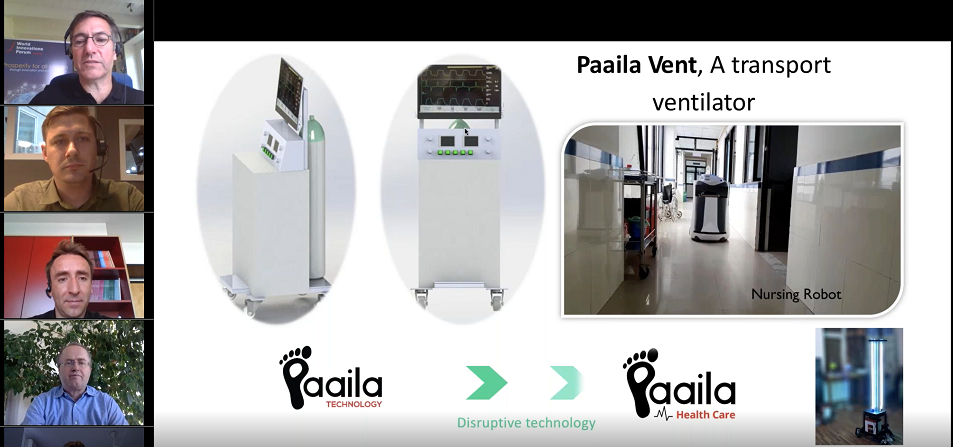
FINANCIAL COMPANY VALUATIONS
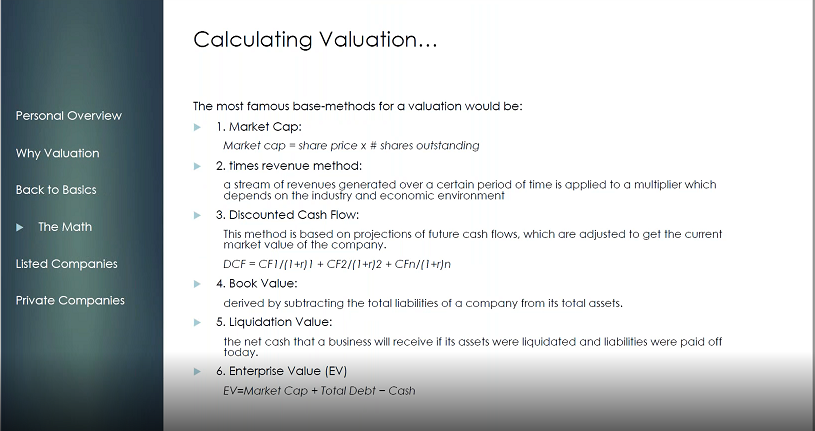 The most challenging finance question for startups is to create a meaningful and defensible company valuation. This challenge is the same, all over the planet. Karim Raffa, a finance expert, former entrepreneur and investor himself is educating startups to create valuations that attract investors but not ruining their capital. Karim is also helping investors to make meaningful offers, because asking for too much equity in the beginning may change the discussion quickly against both, investor and entrepreneur.
The most challenging finance question for startups is to create a meaningful and defensible company valuation. This challenge is the same, all over the planet. Karim Raffa, a finance expert, former entrepreneur and investor himself is educating startups to create valuations that attract investors but not ruining their capital. Karim is also helping investors to make meaningful offers, because asking for too much equity in the beginning may change the discussion quickly against both, investor and entrepreneur.
INVESTOR ROUND TABLE
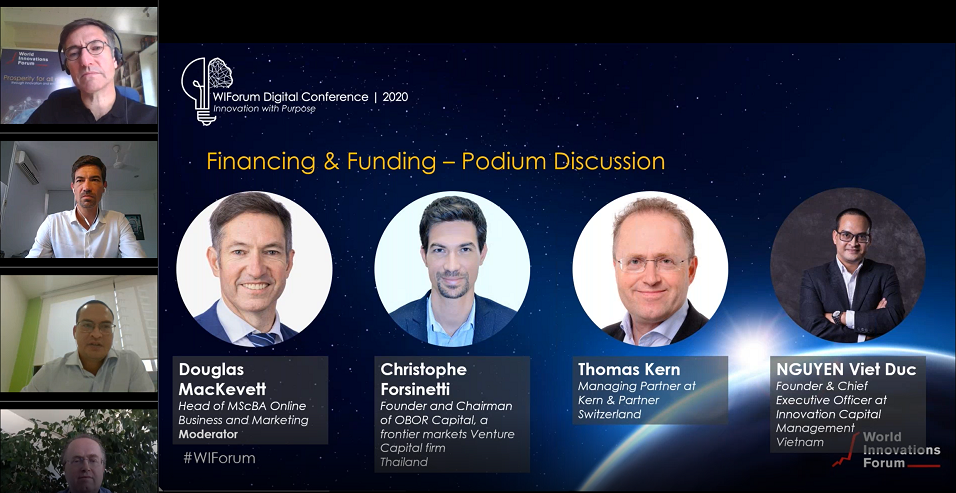 With investors from Cambodia [Christophe Forsinetti], Switzerland [Thomas Kern], and Vietnam [Duc Viet Nguyen], we had a great mix of representation from developing, fast emerging and developed nations. Investors from around the world look for gold nuggets. Average quality startups are nearing a million and have the highest risk. Lack of well structured FDI policies for equity foreign direct investments however still prohibit deep pocket investors to invest in these new countries. In Asia most startups move their HQs to Singapore and African companies to the UK, Singapore or Switzerland.
With investors from Cambodia [Christophe Forsinetti], Switzerland [Thomas Kern], and Vietnam [Duc Viet Nguyen], we had a great mix of representation from developing, fast emerging and developed nations. Investors from around the world look for gold nuggets. Average quality startups are nearing a million and have the highest risk. Lack of well structured FDI policies for equity foreign direct investments however still prohibit deep pocket investors to invest in these new countries. In Asia most startups move their HQs to Singapore and African companies to the UK, Singapore or Switzerland.
INNOVATION OF NATIONS
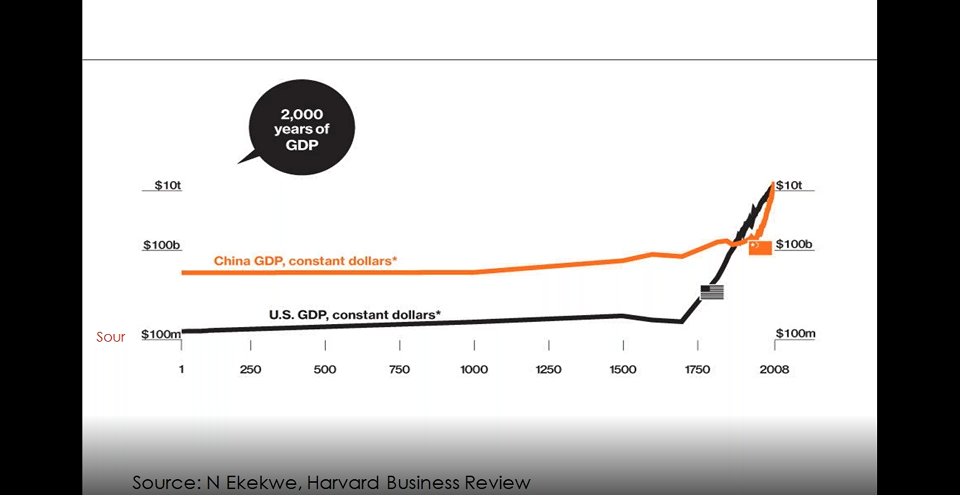
We heard an intellectually demanding but to the point speech from Ndubuisi Ekekwe, about the importance of innovation for each nation as a key to competitiveness and prosperity. He talked about how good policies can unleash the power of innovation or limit them, and what economic frameworks can do to empower entrepreneurship to thrive and create jobs or disable their abilities and make them possibly leave their countries. He essentially delivered the recipe for politicians to make their countries thrive.
DEVELOPMENT IN AFRICA
Emmanuel Ndonga spoke about the unique opportunities for Africa. Almost 60% of the African population is under the age of 25 with untapped opportunities for growth and development. But Africa is not a country with a culture, it is continent 54 sovereign countries and a total population of 1.3 Billion with a fast growing number of university graduates. Emmanuel presented an amazing list of activities for governments and the population to get up and get autonomous, reducing external influence and becoming innovative – because they can. Similarly a great presentation from Ashwin Ravichandran who spent many years in Africa, and helped hundreds of entrepreneurs build their businesses and thrive. Africa has changed dramatically in the past 10 years and the biggest shift is yet to come.
THE INFLUENCE OF EDUCATION
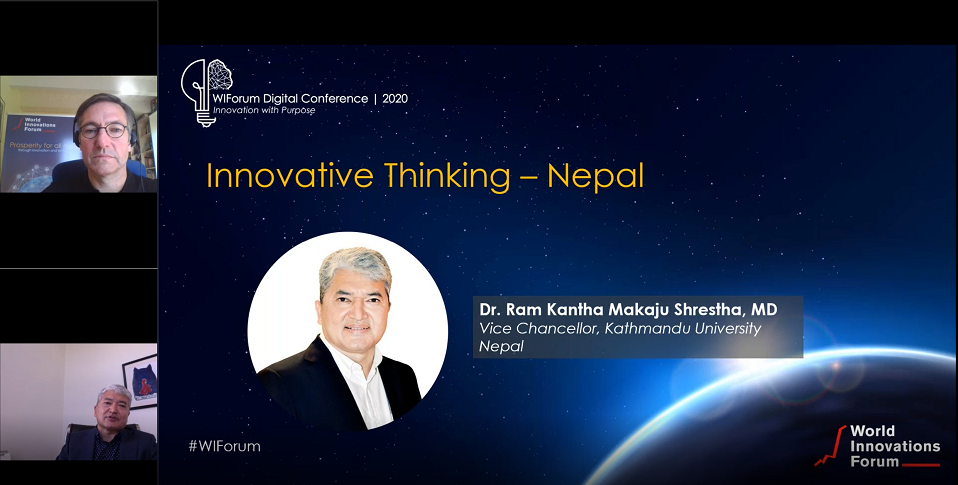 Education, in particular education for innovative thinking, like it is practices in Switzerland, was addressed by Dr. Ram Shrestha Ph.D., Vice Chancellor of the Kathmandu University. He gave insights into how and why Nepal should accelerate their motivation to more entrepreneurship in Nepal. Later on Dr. Matthes Fleck, Ph.D. from the University for Science and Arts in Lucerne spoke about the talent development of entrepreneurs from western universities and the importance for startups to get access to those talents early on.
Education, in particular education for innovative thinking, like it is practices in Switzerland, was addressed by Dr. Ram Shrestha Ph.D., Vice Chancellor of the Kathmandu University. He gave insights into how and why Nepal should accelerate their motivation to more entrepreneurship in Nepal. Later on Dr. Matthes Fleck, Ph.D. from the University for Science and Arts in Lucerne spoke about the talent development of entrepreneurs from western universities and the importance for startups to get access to those talents early on.
ENTREPRENEURSHIP GENDER NEUTRAL
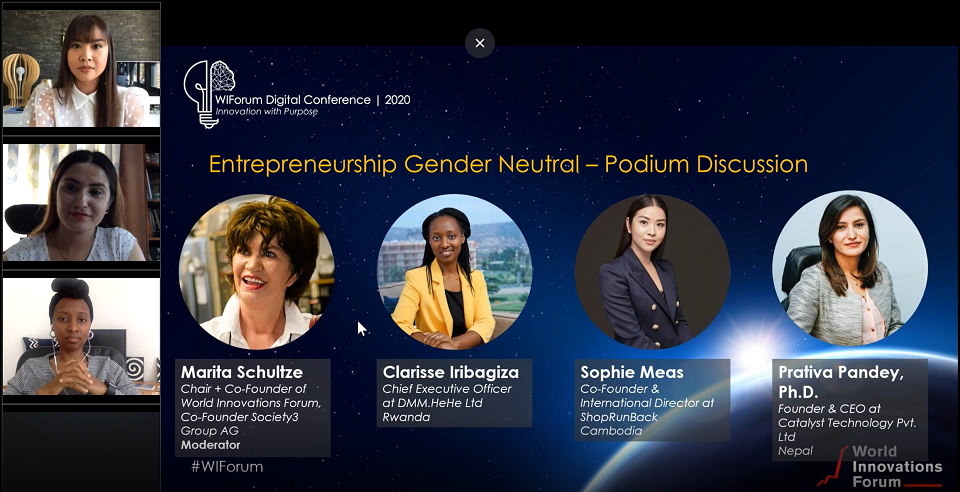 WIForum Chair and co-founder Marita Schultze organized a round table where female entrepreneurs including Clarisse Iribagiza from Rwanda, Sophie Meas from Cambodia and Prativa Pandey, Ph.D. from Nepal had a partly controversial discussion about the role women in entrepreneurship. In some countries it is not even a discussion about the gender sensitivity, yet in others societies, women are still discriminated in so many ways, like in Nepal, so that the entrepreneurship aspect is just a side effect.
WIForum Chair and co-founder Marita Schultze organized a round table where female entrepreneurs including Clarisse Iribagiza from Rwanda, Sophie Meas from Cambodia and Prativa Pandey, Ph.D. from Nepal had a partly controversial discussion about the role women in entrepreneurship. In some countries it is not even a discussion about the gender sensitivity, yet in others societies, women are still discriminated in so many ways, like in Nepal, so that the entrepreneurship aspect is just a side effect.
NEURO IDEATION
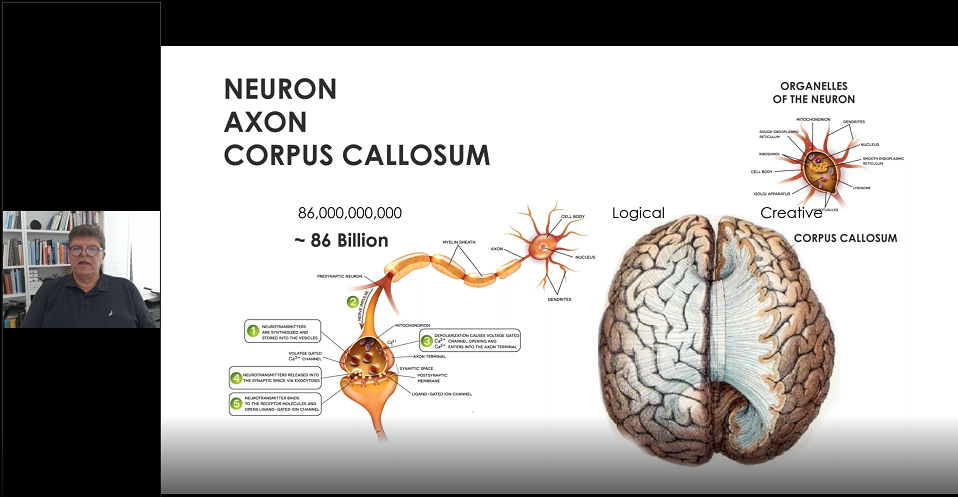 The most advanced technique to create innovative and disruptive ideas and turn them into reality is Neuro Ideation. Attendees learned how the brain actually composes ideas and how they are processed so that innovation can happen. The concept of Neuro Ideation is brand new and puts emerging countries and developed countries on a even playing level. Rapid idea development, accompanied by a disruptive business model can happen as quickly as 3 weeks but no longer than 6 months. The Deep Innovation Design method, with neuro ideation at its core fundamentally changes the act of innovation and disrupts innovation itself. The world Innovations Forum, together with the Society3 Group will be empowering entrepreneurs independent of which country they are from.
The most advanced technique to create innovative and disruptive ideas and turn them into reality is Neuro Ideation. Attendees learned how the brain actually composes ideas and how they are processed so that innovation can happen. The concept of Neuro Ideation is brand new and puts emerging countries and developed countries on a even playing level. Rapid idea development, accompanied by a disruptive business model can happen as quickly as 3 weeks but no longer than 6 months. The Deep Innovation Design method, with neuro ideation at its core fundamentally changes the act of innovation and disrupts innovation itself. The world Innovations Forum, together with the Society3 Group will be empowering entrepreneurs independent of which country they are from.
INNOVATION FIGHTING PANDEMICS
 Another highly innovation related topic, that is very timely as well, was presented by Cafer Tosun, an SAP executive and Advisory Board Member to the WIForum. Innovation Fighting Pandemic, is an initiative, led by Cafer Tosun, leveraging the innovative spirit to fight covid-19. After a short but intense campaign to wear a mask, the campaign was reduced in intensity after 62 countries announced masks are mandatory or at least highly recommended. He shared some details about a new project where innovative thinking was applied in its truest sense. A concept to eradicate covid-19 neither by vaccines or treatment but by mass testing and stopping the transfer of the virus. The method and concept to do so came neither from the technology sector nor from the medical sector, but from the genetics space. There is a good chance to test millions of people per day and up to 5 billion in a week. We will be providing updates after the next tests in a few days.
Another highly innovation related topic, that is very timely as well, was presented by Cafer Tosun, an SAP executive and Advisory Board Member to the WIForum. Innovation Fighting Pandemic, is an initiative, led by Cafer Tosun, leveraging the innovative spirit to fight covid-19. After a short but intense campaign to wear a mask, the campaign was reduced in intensity after 62 countries announced masks are mandatory or at least highly recommended. He shared some details about a new project where innovative thinking was applied in its truest sense. A concept to eradicate covid-19 neither by vaccines or treatment but by mass testing and stopping the transfer of the virus. The method and concept to do so came neither from the technology sector nor from the medical sector, but from the genetics space. There is a good chance to test millions of people per day and up to 5 billion in a week. We will be providing updates after the next tests in a few days.
THE PEOPLE BEHIND THE VISION IN EACH COUNTRY
During the three days we also heard from our Country Ambassadors: Dung Trung Nguyen [Vietnam], Khem Lakai [Nepal], Christella Uwamahoro [Rwanda], Eunice Nyandat [Kenya] and MacCarthy Mac-Gbathy [Ghana]. With each of them we discussed what is attractive in their country for those seeking entrepreneurship opportunities, how fast they develop and what the possibilities are for foreigner who may help build their respecting nations. History has shown that there have been many “Lands of Opportunity” in the past: Egypt, Greece, Rome, the UK, the US to name just a few. All have been nearly world dominating – none have ever seen true world domination. Now, there are many different lands of opportunities popping up almost at the same time. Maybe it is the time humankind realizes that we can only reach our best potential when all other nations reach their best potential as well.
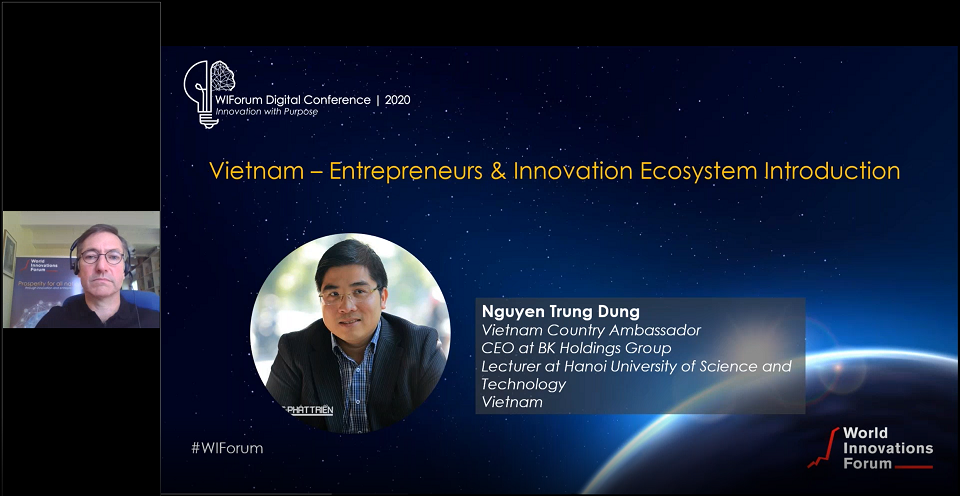
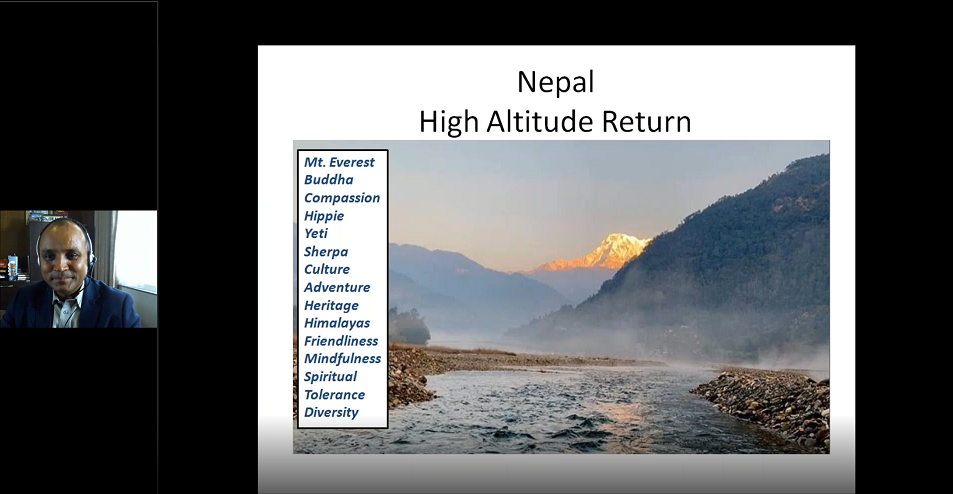
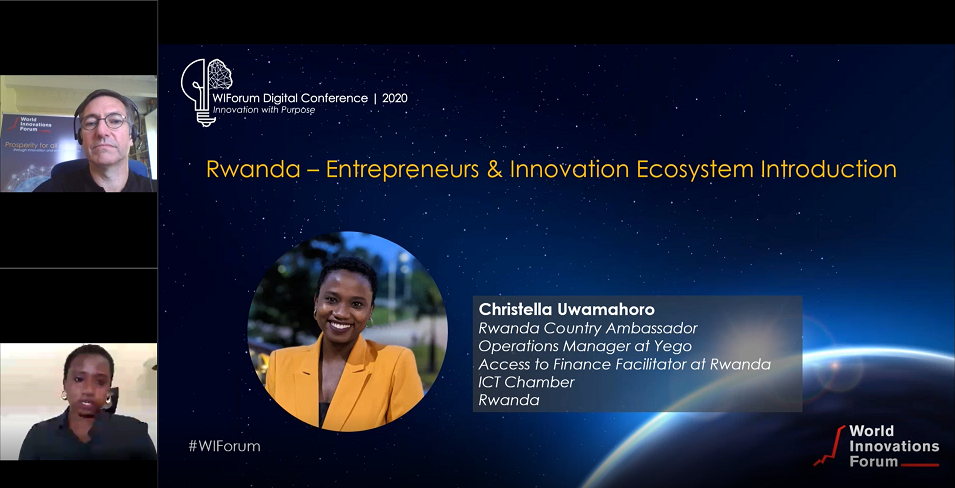
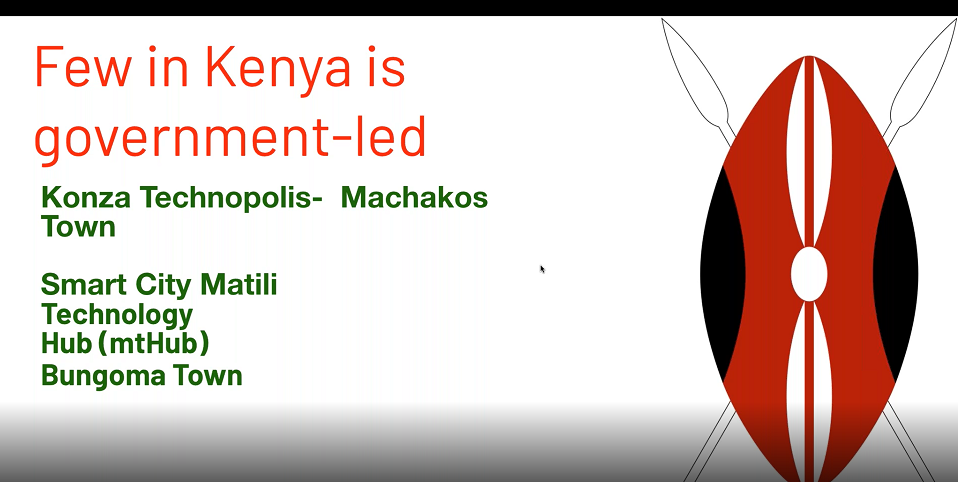
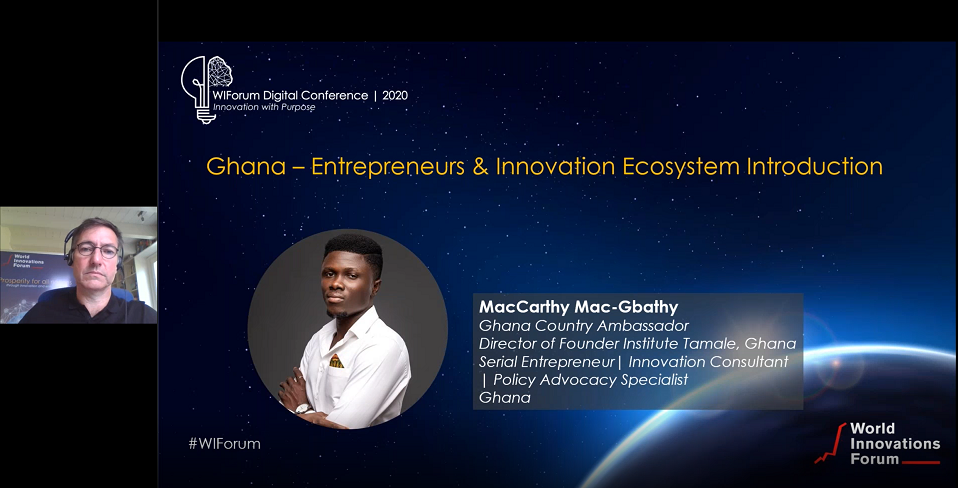
THE FUTURE OF NATIONS
It is no longer a futuristic vision, that emerging countries will become a significant contributor to our global economy. Well aware of what worked and what didn’t in the past, most entrepreneurs of the future are very well aware that companies with 100,000+ employees are most likely not the future of the global economy but highly agile specialists connecting and collaborating with each other. The makers movement in China has already proven that millions of people are producing a small number of unique components faster, better and less expensive than any other nation. The advantage is not the cheap labor as labor cost rises in Shenzhen very quickly as well – the advantage is an unparalleled agility. The other mega challenge is global energy consumption. As more and more emerging countries are rising, so is their energy hunger. Also here, ingenuity and unique entrepreneurs working on various energy related projects such as geothermal energy development in Kenya, where 40% of Kenya’s energy consumption is generated by that technology. Geothermal development in Ethiopia, Kenya, Tanzania, Uganda and Rwanda will provide much-needed environmentally sustainable energy, maybe one day for all of us. Similarly is the development in South East Asia rapidly moving towards better technology, far more automation than in any other area in the World. Singapore can be called the most advanced nation in the world with an unseen before balance between human development, nature protection, sustainable planning for the future and a nowhere else achieved lifestyle. The 4.4 Billion Asians plus 1.4 billion Africans represent not only by far the largest markets on earth but also the most agile development and most innovation hungry young generation. The biggest advantage of this 5.8 billion population (75% of all people) is their low level of protectionism, bureaucracy and innovation blocking interest groups.
By 2030 we can expect developed nations will be doubling and by 2040 doubling again, which means more than half of the nations are having a status of developed country.
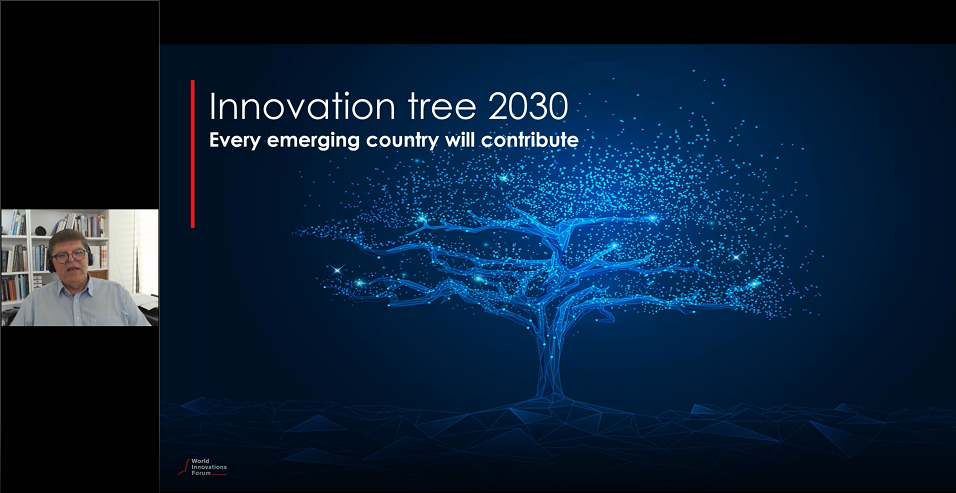
Axel Schultze, the World Innovations Forum chairman closes by saying “Even the world’s strongest nation will unfold it’s biggest potential, at the day every other country has reached theirs”.
The next World Innovations Forum Global Conference is scheduled to be held in June 2022.
The whole WIForum Team in Switzerland as well as all our national teams in the respective countries like to thank everybody for their amazing contribution and participation in this years event.
The world needs more 007s
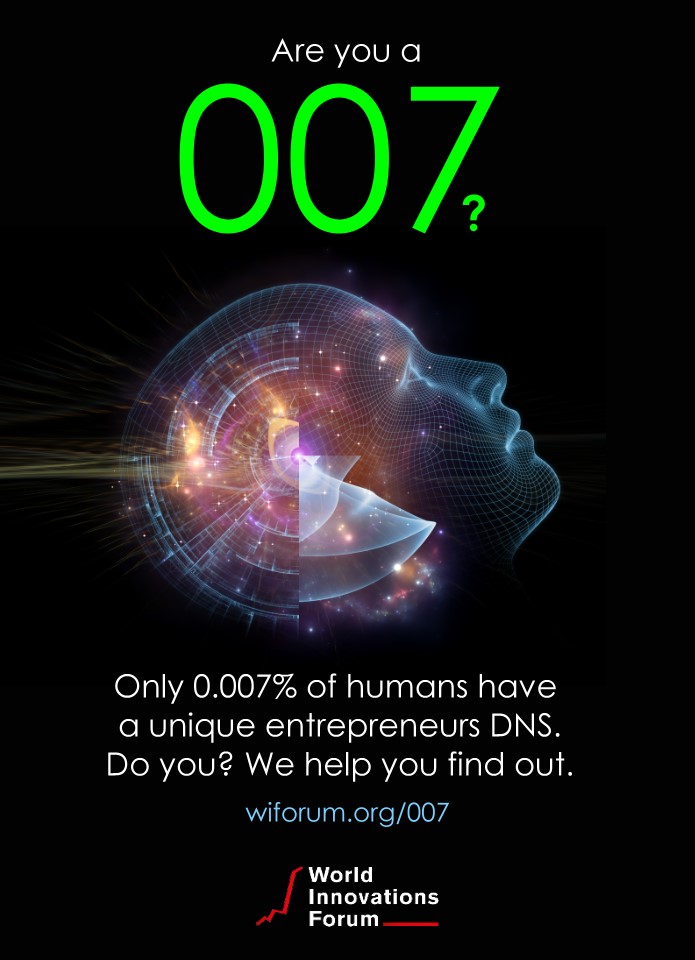
When you look for successful companies who have somewhere more than 25-50 employees, you will find about 400,000 companies. And when we assume about 6 billion adults you will come to 0.007% of people founding, co-founding and running those companies. Entrepreneurs are clearly a extremely rare minority. Now – the number is obviously dominated by the developed nations who have a culture of business builders. One may think also a much better education system. But the argument of education is not quite holding. Most of the successful entrepreneurs actually quit school before graduation and just started their company. Many of today’s or even yesterday’s entrepreneurs did not come from a wealthy family or from a family with entrepreneurial background or had a great education. Researching the background of hundreds of entrepreneurs we worked with made it pretty clear: The only pattern is no pattern.
How Many More Hidden Gems are there?
Now the most interesting question arises: How many of those hidden gems do we have all over Africa, Asia, Latin America, Eastern Europe and the rest of the world?
At the World Innovations Forum we are looking especially for that minority of often laughed at, crazy people with amazing ideas that seem to be completely unrealistic. We are not necessarily looking for people who want to start a company but also those who would love to become a co-founder or work in a startup like environment in a corporate innovation lab.
Test Your Entrepreneurial DNA
If you like to know whether you maybe a good entrepreneur or a good co-founder or somebody living your entrepreneurial dream in a corporate innovation lab, do your your test. This project is not funded by any corporation. Therefor we need to fund it ourselves and ask for $2.50 to contribute to the WIForum organization. You will win regardless. If you know you are an entrepreneur, great, if you know you are probably not, you can safe time and money from trying and if you still want to try – you actually should anyway.
After you completed the test we will review it and let you know. Those who appear to be especially talented will be invited to an interview to possibly join the WIForum Entrepreneurum, a special entrepreneurship preparation program that may lead to an entry into the Innopreneurs Academy.
Join the Innopreneurs Academy
The Innopreneurs Academy will work with participants deeply on innovation design, creating ground breaking innovation and building their company within a six month period. The developed world was built on the shoulders of a handful of amazing entrepreneurs. We see no reason to experience the same in all nations. The only difference we are looking at: Don’t make the same mistakes the old world did and grow monster companies that can no longer innovate. Instead build highly specialized highly connected enterprises where many other enterprises deliver specialized parts or services. Economies with a small number of monster organizations are doomed to fail, while highly agile economies with lots of innovative companies collaborating show the most stable societies.
NOTE: this concept may look completely contradicting the idea of inclusion. But in the case of entrepreneurship we cannot circumvent mother nature. There are only so many talents on earth – but we want to include all of them. Democratizing entrepreneurship.
You know, that on average 10% of startups win – Don’t focus on those who did not make it. UNDERSTAND WHAT THE F**K DID THE GOOD STARTUPS HAVE TO WIN?
Our most recent Accelerator – Flight 8 – is a great example (picture). “The winner takes it all” – even the funding.
The epic list of failing
The list of questions about what went wrong feels endless. Tens of thousands of little reasons why they fail. And 90% of young entrepreneurs focus on exactly that – they FEAR to fail. Interestingly enough those who win don’t fear anything – not even to fail.
The short list of winning
Instead of fearing to fail, become determined to win. And it takes only 5 key aspects:
- Founders Team Composition
The difference between success and failure, we found are these 10 traits or talents: fearless, creative, determined, curious, independent, confident, connected, communicative, involving and intelligent are the top 10 traits for entrepreneurs.
If you don’t have some of those traits, no problem at all – only you may not be the perfect choice for a founder. And if you are, you most likely won’t make it alone. At least in the past 50 years no solopreneur made it to a top company. So don’t go forward alone. Having co-founders means sharing – sharing equity sharing the pain sharing the win in the end. Another of the most read blog posts explains it pretty well. The best founders are co-founders. - Problem Solving Nature
Founding a company just to be your own boss or because it looks like it can make you rich – will be failing you with 100%. But seeing an opportunity to fix one of the countless problems and making the designated audience more successful and/or more happy it is hard to fail. There are hundreds of problems and if they still exist nobody else found a great solution – maybe you will. - Observer & Listener
The simple skills – or not so simple for many people – is being a great observer and listener. Watch people what they do and how they do it. You may get an idea to solve it. Listen to people what they say, how they say it and what their emotions are. Just listening may give you great ideas, verify it with others and build the idea up. The reason why we have so many unsolved problems is because nobody had the energy to start a company solving it. Here are over 100 unsolved problems. - Execution
Once you really know what problem you want to solve and made enough effort to verify your idea with future customers and don’t worry about your idea get stolen you will need to execute. Hence the name Chief EXECUTIVE officer. That means hiring the best of the best people and jointly sticking to what you want to achieve. Work with the most advanced customers first – don’t try the easy ones. Look for business partners, suppliers you can learn from and as you perform with the least possible budgets you will grow fast. You see the full list on another post: A day of a startup CEO. Only if you love this job more than anything else – you are in the right spot. And of not, there are lots of other positions to fill. - Making a difference not getting rich
Sheer jealousness and greed made most people look down on the wealthy business owners. Only a few, close enough to them, will realize that most of them never cared about making money. What drives them is making a vision becoming a reality and making a difference. Whether people believe or not doesn’t matter to them they are not looking for attention but progress. And this closes the loop to success. It takes a dream team, eager to solve problems, carefully observing markets and executing that vision no matter what, tio build a phenomenal company. And there are many ways to get funding. Trying to get rich at the same time is a huge distraction and almost always leads to failure. Of course they get rich after a few yours successfully growing their business, very rich. But focusing on that is a killer.
This list is “inclusive” a single missing item on that list seem to cause death of a startup. This list follows the weak link principal. If one is weak – all is weak.
You wonder about financing, missing investors, VCs, and so forth? Here it comes again: blinded by money. You believe you need to hire people to build a perfect solution or a business person to run operations? Again: Blinded by money – look for a co-founder instead. You need marketing and therefor money? You can already see it where it goes. The best entrepreneurs in the world “built something with nothing” – that makes the biggest difference in one sentence.
![]()
June 23-25, the second World Innovations Forum Conference, will be held online. Broadcasted from our innovation studios in Lucerne Switzerland, attendees will meet innovative minds from fast-emerging countries discussing needs and dreams, plans and programs to bring the “New World” on eye-level with the “Old World.” Ingenuity, curiosity, determination, networking power, unbreakable will-power, and top education, all of the necessities of top-level entrepreneurs are seen in the fearless and risk-taking entrepreneurs in South East Asia and Africa. Many of those countries are on the verge of profound change. Let’s be straight forward; self-confidence and eagerness unfolds ingenuity.
EMERGING DETERMINATION
The same determination drives the WIForum Foundation members such as country ambassadors, champions, partners, volunteers from Cambodia, Ghana, Indonesia, Kenya, Laos, Myanmar, Nepal, Nigeria, Rwanda, Uganda, and Vietnam, as well as industry partners from developed nations. The goal is to elevate the economic level of those nations to become autonomous and able to compete in global markets – but more importantly, contribute to human progress. The fact of life: 1 billion people can only feed the other 6 billion people if that is their sole focus. But, 7 billion people together are able to solve most of the biggest problems we see today in the near future and can truly be considered equal. Togetherness empowers us to get to sustainable innovation in our industry, energy needs, care and social development while building out our comfortable lives – without sacrificing our planet.
WORLDS LARGEST INNOVATION POTENTIAL
The two largest continents by size, Asia and Africa, and also by population, with 6 of the 7.7 billion people, represent the most substantial innovation potential on earth. The WIForum Digital 2020 Conference offers an insight into what to expect from the most significant parts of our planet and where it may take us. You will get a glimpse into the world of top-notch startups from Africa and Asia and how they shape to win the world. By the end of this decade we will see a boost of innovation of seismic proportion.
SPEAKERS
If you are looking for the globally well known speakers – we will need to disappoint you. The innovative minds from tomorrow are not the heroes from yesterday. We also don’t want to list the same problems that one always hears and the same successes that we already know. We decided to give you insights from what is actually happening today and where it must lead to tomorrow. Join us on the ground and draw your own trajectory for the real tomorrow.
Startups from Cambodia, Ghana, Indonesia, Kenya, Laos, Myanmar, Nepal, Nigeria, Rwanda, Uganda, and Vietnam are still invited to apply to present
wiforum.org/wifdigital-entrepreneurs/
 Covid-19 is only one crisis of many in our near past – and you will learn to live with crises in the future. Moreover, you should make your startup crisis resistant.
Covid-19 is only one crisis of many in our near past – and you will learn to live with crises in the future. Moreover, you should make your startup crisis resistant.
With the track record below you can almost be sure there will be yet another problem lurking around the corner and you need to be ready to take it. My personal recommendation: “DO NOT SPEND A HUGE AMOUNT OF EFFORT IN PROTECTING YOUR BUSINESS FOR A FUTURE CRISIS” but be aware that it can happen every day again and it can be completely different than anything we have seen so far.
- Oil crisis early 1980’s
It was the first big rush into the startup world. Comdex started in 1979 and the tech startups flourished. But for most other firms it was a year of financial trouble. The oil crisis had it’s peak. We were looking for funding for Computer 2000 – not much luck initially. - Bubble burst 2000
The stock exchanges collapsed under the Internet Bubble burst. Extreme speculation caused a huge financial crisis. Several investors even committed suicide. Thereafter there was no funding for any startup whatsoever. We were 4 weeks away from our IPO, spent all the money on it, and then boom. How to survive? Today the company doomed to die does nearly a billion in revenue. - September 11, 2001
The Internet Bubble seemed to be fading out, and the next big crisis followed right on their heels. And again no funding, no support, nothing that could keep a startup alive unless they found their own way. It was the day of our very first investor pitch at a new startup BueRoads. Obviously it did not happen. Five years later we were the market leader in our space. - US economy meltdown in 2008
The prime rate disaster killed the entire US economy. Startups – again – had nowhere to go. And again cash conservation was the call of that time. Only the best survived. We were just launching the Social Media Academy. Five years later we had the highest reputation in the Social Media education space. - Refugee crisis in 2015
Millions of refugees from the middle east and north Africa had to leave everything back and migrated to other countries. Those who tried to start a business in the North African belt had to start all over – in foreign countries with no connections. We started a refugee accelerator to help migrating entrepreneurs to start a business in Germany – where nearly a million refugees entered. Five years later, 12 companies survived and created over 100 jobs. - Corona in 2020
And again, yet a different type of crisis but the same effects: Startups run out of money and either find a way to survive or go out of business. And again the best will survive and the weak ones will die. - TBD 20XX
With that history, we, entrepreneurs, and the entrepreneurs to come will need to deal with it. All entrepreneurs have to consider an incident that may cause their crash and go through it. Disaster Recovery is not only an IT term or for economies but for every business no matter how small or large.
The Big Advantage
Today we have a huge advantage over previous times: Healthy businesses can switch to a digital continuation plan within days. Home offices, fully connected employees can access even the mainframes through digital connections to the corporate main frames or local networks, video conferences can connect us with virtually anybody, we don’t need fax or paper, we don’t need to travel, and with a two- or three-week time lack we “could” go back to full production. The biggest issue is still coordinating an entire country to do the right things at the right time. And education is key. This current crisis has demonstrated to perfection where our weaknesses and opportunities are. As posted before: We will never get back to what was in the past. Business already did and will continue to massively shift towards a digital life far beyond what we have today.
Startups here and now
You have been at school for any of the previous crisis or not even alive back then. But there is quite a learning. The questions basically are:
What did startups do in the economic crisis 2001?
– With innovative ideas, maximum cash conservation, alternative funding and more.
How did refugees build a business with nothing?
– With an unbendable willpower to survive and the dream to get their families into safety and build a new existence.
How to structure a business during a crisis?
– Forgetting growth and every mundane drive forward but move into survival mode and never give up on the big and bold vision of a different future that made the company start in the first place.
How to turn a business to profitability in 30 days?
– By taking any available creativity to get cost down to zero and maximize the effort to get revenue.
What resources are still available in bad times?
– Every positive thinking human is more open to help than ever before – just ask!
What funding options, other than investors exist?
– There are at least 10 alternative ways to get funding from friends, partners, crowdfunding, banks, grants, service sales, pre-production sales, and more.
The best startups have always been those who survived a crisis.
If you are fully “digital & social”, social in the sense of social media, you have a huge advantage right now. But if the next crisis is a cyber-war, energy attack that leaves us with no power and no Internet? What would we do? There will be a startup with cool solutions as well :)
Please join us on our online call for entrepreneurs: “Surviving a crisis”
Also please share your own tips, experiences, and suggestions.
The world is introduced to two more ways to be divided. In the past we divide between east and west, north and south, good and mediocre education, blue collar and white collar, religious and non religious and so forth. The digital divide has been discussed more on a local level and language divide is an almost none issue.
In just 4 months however, the digital divide became a global topic and the discussions around the language divide has moved from scientific and sociologic discussions to a global divide of English and Non-English speaking groups.
LANGUAGE DIVIDE
Politicians with less English language capabilities have less global insights in the virus development and take much longer to respond. Those, who are fluently speaking English have usually a faster response time, with a few exceptions. The German chancellor for instance explored all globally available date and decided with a very clear answer and very well educated. We see the late start but the radical results. And even within countries one can experience the divide based on language skills or the lack thereof.
DIGITAL DIVIDE
Rapidly setup digital home office or not. Using conference calls or not. Business continuation plans or not. Staying connected or not. Remaining social or being isolated. What was “BAD” and having potentially long term negative impact – all of a sudden became a social LIFE SAVER.
Even most stubborn businesses or governments rationalized that we are divided in two worlds: the digitally connected and the physically connected. One can switch behavior and work modi in an instant others not at all.
And we learned more: Those who work from home over a longer period of time, now either start working later and really sleep in – but are usually up later in the evening and vice versa. I realized getting emails from some people already at 6am, long before I usually be up and have even phone calls at 11pm because that is more like my time :) Funny – it not only doesn’t hurt – it actually makes life much more natural.Everybody can live their life by their inner clock. Did I mention daylight savings time? NO I actually get only disrupted by the change of my clock – but not my inner cycle.
COMBiNATION OF BOTH
Both together: the digital and the language divide are a powerful couple or a serious threat. When running innovation development programs with participants from literally around the world we realized a phenomenal effect: NO matter whether the participants are from Ghana, Vietnam, South Korea, California or Switzerland, the digitally literate and fluently English speaking attendees show no sign of any difference. Even not when one comes from one of the top universities and others from mid level education. Innovators seem to speak a universal language of fearlessness, creativity, curiosity and ambition.
In the end, all the good intention and experiments to bring more equality to the world, with at least moderate impact pushed a 0.3 micron small virus rapidly forward. Only time will tell the real impact past corona. For now the degree of unification however shows amazing progress.
The most successful startups in the world start with an amazing business idea. Even though the initial value of even the grandest idea is zero, it is the very moment that sets everything in motion and possibly changes the world – again.
I’m asked weekly the same questions in may different ways of course: “I want to start my own business, what would be a good business idea.” Years ago I had a rather gruffy answer: “Why do you want to start a business if you don’t know what to do – just because its trendy?” Over time I learned that there is a global urge for doing something more meaningful, more creative, more important and become the center of that meaning yourselves. And if that is the purpose – than people asking that question deserve a great answer. Yet the question is essentially the same:
What can I do to be more meaningful in live.
Interestingly enough, that question leads to a very different answer. It isn’t to look for a business that is in demand right now, or a business based on the persons education or expertise, or a business that may provide best and fastest return of investment. It isn’t a business category or type answer at all.
The better answer is to look where people have problems and finding solutions. Looking for people that are at risk and find ways to make their job less risky. Or people that do jobs they are not built for and helping find ways to match them. And the whole slew of problems from purified water, to better hygiene, to reducing energy consumption, energy storage, and the approximately millions of other ideas.
So you cannot start a new business with no business idea, it would not be a business. What you can do however is trying to solve a real problem, no matter how big and complex it may be.
AirBnB solved the problem that millions of traveler had, staying in a cozy with a full size refrigerator, a living room to meet with friend, where you can have breakfast whenever you like and a room to work that is more than is bigger than closet without booking a suite.
Uber solved the problem people had when using a taxi that you were never sure that it comes in time and it takes you the best way to your destination.
Space-X solved the problem that government driven space agencies have to build efficient rockets for commercial or private use.
Systec solved the problem of stranded shopping carts at large shopping centers by simply connecting all cars with a chain and releasing the cart by putting in a dollar or Euro or whatever currency and getting it back once the cart is returned.
Whether its a simply chain lock or a reusable space ship – and everything in between, solving real problems in a real simple way creates super successful businesses.
On aggregate there are millions of hours wasted every month my millions of people looking for an idea somebody else already had to copy. Instead of looking for problems nobody had solved yet. People my think they are not capable to solve problems, too weak to start something new, too inexperienced to come up with a radical shift, too “little” to do something valuable, have too less money to do something big. All of those fears are usually coming to mind when you are educated to be of no value, too stupid, to “little” too poore…. Than think about the other way like we put the question upside down: Are you too “little” to be helpful? And if that is hopefully a NO – than go solve whatever problem you identify to solve. Find co-founders to complement your skillset and collaborate for a purpose – nut for just running a business.
And if you are still not sure, study the most influential inventors of the past 10 years, past 50 years or past 200 years. You will notice that most of them started with nothing, a lot of respect for the problem they are trying to solve and a ton of energy to never give up.
You may want to join our upcoming Idea Seeker webinar.
It’s on May 4th and part of the Knowledge Transfer series for young entrepreneurs.
All it takes: nothing but respect and energy :)
The super boys and girls never win – the humble, respectful and never quitting, always will. Go for it!
